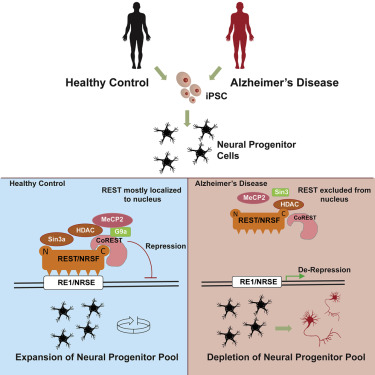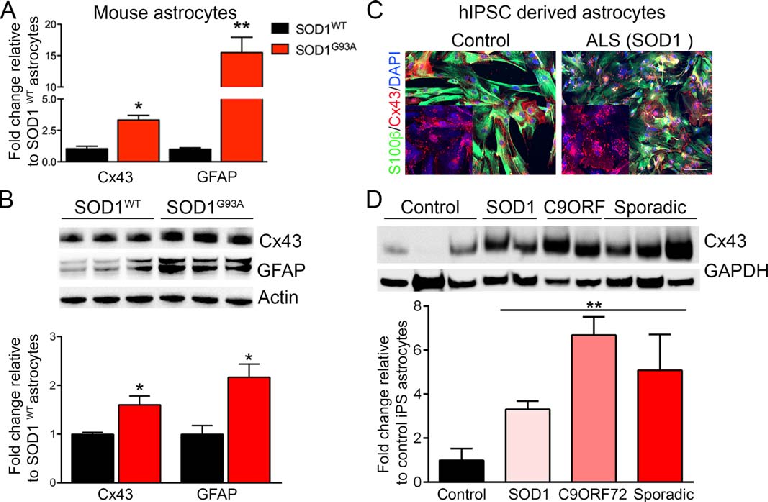Neurodegeneration is a feature of many debilitating, incurable diseases that are rapidly rising in prevalence, such as Alzheimer's disease, Parkinson's disease, Huntington's disease, amyotrophic lateral sclerosis, frontotemporal dementia and the spinocerebellar ataxias. There is an urgent need to develop new and more effective therapeutic strategies to combat these devastating diseases. Models – from cell-based systems, to unicellular organisms, to complex animals – have proven to be a useful tool to help the research community shed light on the mechanisms underlying neurodegenerative diseases, and these advances have now begun to provide promising therapeutic avenues.

Neurodegenerative diseases are diverse in their pathophysiology. Therefore, effective treatments are desperately needed but will only come with a deep understanding of the causes and mechanisms of each disease.
Comprehensive characterization services for disease-specific models are also provided.
 Cx43 expression is inherently elevated in mouse SOD1 G93A astrocytes and ALS human iPSC-derived astrocytes.
Cx43 expression is inherently elevated in mouse SOD1 G93A astrocytes and ALS human iPSC-derived astrocytes.
BioCytoceuticals leads the industry in cellular therapy with commitment to providing the most appropriate solutions to address the needs of our clients. Our expert team of scientists applies comprehensive methods and most detail-oriented scrutiny to ensure only top-tier outcome is submitted.
If you have any special enquiries regarding our Neurodegeneration diseases models service, please do not hesitate to contact us. Our highly professional technical supporting staffs will make sure your requests are faithfully received. We are looking forward to earning your business.
Inquiry